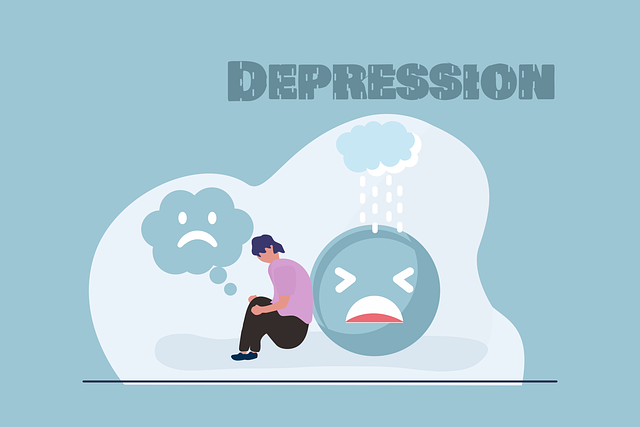Louisville Cognitive Behavioral Therapy (CBT) leverages positive thinking to transform mental well-being, boosting resilience, self-esteem, and decision-making skills. By integrating exercises like gratitude journaling and mindfulness, CBT sessions enhance traditional therapy, preventing burnout and depression. Through social skills training, compassion cultivation, and personalized goal setting, Louisville CBT empowers clients to take control of their mental health journeys, achieving improved overall well-being.
In today’s fast-paced world, cultivating positive thinking is a game-changer for mental well-being. This article explores the transformative power of positive thinking exercises within the context of Louisville Cognitive Behavioral Therapy (CBT). We delve into understanding the impact of positive psychology and its practical integration into therapy sessions. By providing actionable strategies, therapists in Louisville can empower clients to embrace optimism, enhance resilience, and achieve lasting improvements in their mental health journeys.
- Understanding Positive Thinking and Its Impact
- Integrating Positive Thinking Exercises into Therapy Sessions
- Practical Implementation Strategies for Louisville Cognitive Behavioral Therapists
- Measuring Success and Adjusting the Approach
Understanding Positive Thinking and Its Impact

Positive thinking is a powerful tool that can transform one’s mental health and overall well-being. It involves cultivating optimistic attitudes and replacing negative thought patterns with more uplifting and constructive ones. Louisville Cognitive Behavioral Therapy (CBT) emphasizes this concept, helping individuals understand that their thoughts directly impact their emotions and behaviors. By fostering positive thinking, folks can enhance their resilience, boost self-esteem, and reduce the risk of depression prevention.
This simple yet profound exercise has far-reaching effects on mental health awareness. It encourages a more positive outlook, which can lead to improved decision-making, better coping mechanisms, and increased productivity. In today’s fast-paced world, where stress and anxiety are prevalent, Louisville CBT offers a practical approach to navigate these challenges. Positive thinking becomes a strategy to foster mental agility and adaptability, ensuring folks can thrive in various aspects of their lives.
Integrating Positive Thinking Exercises into Therapy Sessions

Integrating positive thinking exercises into therapy sessions has become a powerful tool for Louisville Cognitive Behavioral Therapy (CBT) practitioners. These strategies can significantly enhance traditional therapeutic approaches, particularly in addressing concerns like burnout prevention and depression prevention. By incorporating techniques that foster optimistic perspectives, therapists create an environment conducive to healing and personal growth.
This integration often involves social skills training, where patients learn to identify and challenge negative thought patterns. Such exercises not only equip individuals with coping mechanisms but also promote a more positive outlook on life. This shift in perspective can lead to improved overall well-being and enhanced resilience against mental health setbacks, making it an invaluable asset in any CBT practice.
Practical Implementation Strategies for Louisville Cognitive Behavioral Therapists

Implementing positive thinking exercises in Louisville Cognitive Behavioral Therapy sessions can significantly enhance client outcomes. Therapists can begin by integrating simple techniques like gratitude journaling or brief mindfulness practices into regular routines. Encouraging clients to reflect on and appreciate positive experiences, even small ones, can help shift their perspective and foster resilience.
Additionally, incorporating community outreach program implementation and social skills training allows therapists to connect clients with support networks and teach them effective communication strategies. Compassion cultivation practices, such as kindness meditation, can further strengthen this process. By combining these approaches, Louisville Cognitive Behavioral Therapists can create a holistic treatment plan that empowers individuals to embrace positive thinking and improve their overall well-being.
Measuring Success and Adjusting the Approach

Measuring success is a vital aspect of any positive thinking exercise, especially when considering Louisville Cognitive Behavioral Therapy (CBT) techniques. Therapists should establish clear and achievable goals tailored to each client’s unique needs. These goals could range from improving mood management skills to enhancing overall well-being and cultivating inner strength development. Regularly assessing progress allows therapists to adjust the treatment approach accordingly, ensuring it remains effective. By integrating Mental Health Policy Analysis and Advocacy, CBT practitioners can empower clients to take control of their mental health journeys.
Through ongoing evaluation, therapists gain insights into what strategies are working and where adjustments are needed. This iterative process enables them to refine techniques, fostering a more personalized experience. For instance, if a client consistently benefits from specific exercises for mood management, the therapist can incorporate these practices more frequently. Such adaptability is key to successful CBT implementation, ensuring the therapy aligns with the evolving needs of each individual.
Implementing positive thinking exercises in Louisville cognitive behavioral therapy (CBT) sessions can significantly enhance patient well-being. By fostering a mindset of optimism, therapists empower individuals to challenge negative thought patterns and promote self-efficacy. Through practical strategies tailored to the unique needs of Louisville CBT practitioners, these techniques have proven effective in measuring success and adapting approaches for optimal patient outcomes.










